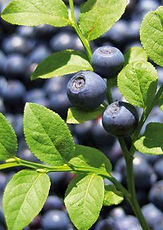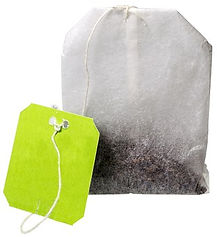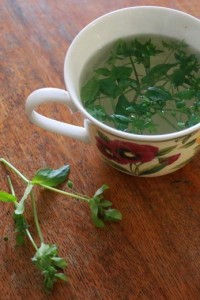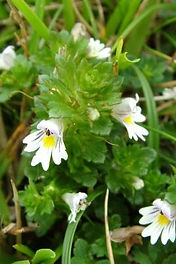
NIGHT BLINDNESS CORRECTION
Natural Remedies: Improve Eyesight and Night Blindness
Bilberry and Rue for Eyesight
Close
It has been reported that Vitamin A deficiency could be a contributor to night blindness, but other reports have shown something entirely different: diabetes, glaucoma, cystic fibrosis, Celiac Disease and cirrhosis are all among a number of other possible causes. While tests are still being conducted to figure out what can be done about night blindness and improving eyesight, many have turned to natural remedies to help.
Bilberry Extract
Bilberries are used in jams and jellies along with being used in natural medicines. According to the University of Maryland Medical Center (UMM), bilberries contain an excellent source of antioxidants that, when taken internally, are used to remove free radicals from the body. Bilberry single herb or bilberry extract uses include general eye problems, night blindness, eyesight improvement, to strengthen capillary weakness, improve retina damage and help prevent cataracts.
The UMM suggests taking 80 to 480mg of bilberry a day for eye conditions. The dosage should be divided and taken three separate times throughout the day.
Other Bilberry Uses
Bilberry extract and fruit has many other uses: cancer, heart disease, spider veins, poor circulation, colitis, nose bleeds, urinary tract infections, varicose veins, build strong blood vessels and when taken for longer periods of time, it has been known to help balance blood sugar levels.
When using bilberry externally, it can be used as an eyewash to reduce visual fatigue and help with the retina. It can also be used as a mouthwash to treat gum inflammation and ulcers.
Rue Herb Extract
While rue leaves can be found in products ranging from herb vinegar to cosmetics, the rue herb is widely used for many ailments and conditions: menstrual pain, headaches, keeping away bugs, ensuring period, tennis elbow, indigestion, stimulates circulation, reduces tension and anxiety, reduces gas, and alleviates colic along with strengthening capillaries and improving eyesight.
Rue can also be used externally to relieve skin diseases and in eye washes to help relieve tired, strained eyes. Rue should not be used by pregnant or lactating women.
Warning: There are many serious eye conditions that need to be treated by a medical professional. Be sure your condition has been properly diagnosed before starting any natural medicine. If possible, schedule an appointment with a Doctor of Natural Medicine to determine the best natural regime for you.
Today's modern lifestyle includes long hours engaged with electronics: computer screens, TV screens, video games, phones, digital readers, and even old fashioned books. We tend to ignore the resulting eyestrain because we assume nothing can be done about it. Eyestrain doesn't permanently damage our vision, but it does cause headaches, blurry vision, and loss of mental focus. Herbal remedies to improve vision include herbs that strengthen the small capillaries around the eyes and increase circulation; ginkgo and bilberry are the two most commonly used herbs.
A diet high in antioxidants and omega-3 fatty acids is one of the best defenses against failing eyesight. Studies have confirmed the old adage about eating lots of carrots, look for supplements containing a combination of selenium, vitamins C and E, and beta carotene.
Commonly known as pinkeye, conjunctivitis is an inflammation of the the clear membrane that covers the white part of the eye and lines the inner surface of the eyelids. It is a fairly common condition and usually causes no danger to the eye or your child's vision. The inflammation can have many causes, the most common of which are infections, allergies, and irritants.
-
Compresses and poultices are a good method to use for tired, aching eyes, not incidentally because to apply them you need to relax, with your head back and eyes closed for 10 to 20 minutes and let the herbal tea solution soak into your eyelids. Great home remedies include crushed apples and easiest of all Cool cucumber slices which are still the number one home remedy to pamper sore eyes.
-
Eyebright still remains the herb of choice for eyewashes. Though it has little validation in clinical trials, eyebright has a long history of proven effectiveness that dates back to the Greeks.
-
Tea bags are an easy, handy, and almost universally available remedy for pinkeye. Both black tea and green tea contains bioflavonoinds that can help reduce inflammation and fight viral and bacterial infection, but green tea has fewer tannins, the astringent chemicals that help shrink swollen tissues.
-
Strain chickweed tea, cool, then use it to moisten a clean, soft cloth for a compress to apply to closed eyes, or dilute infusion with saline solution for eye rinse.
-
The anthocyanosides in bilberry help ensure good circulation in the small capillaries around the eyes and skin preserving the blood supply to the eyes.
-
Ginkgo's action of supporting healthier circulation in the eyes make it an herb of choice for natural treatment of conditions like peripheral vascular insufficiency, and macular degeneration.
-
Rue has been used throughout history to improve eyesight, Italians used the fresh leaf in salads and as a flavoring for grappa (grape liqueur). Rue contains rutin, a constituent that strengthens capillaries and improves blood flow.
-
Although many witch hazel products no longer contain contain tannins, they are still soothing and refreshing to tired eyes. At one time the AMA listed witch hazel as a treatment for eye inflammation. Use witch hazel in a cooling eye compress alone, or in combination with other herbs.


Bilberry
Rue

Tea Bags

Chickweed

Eye Bright



